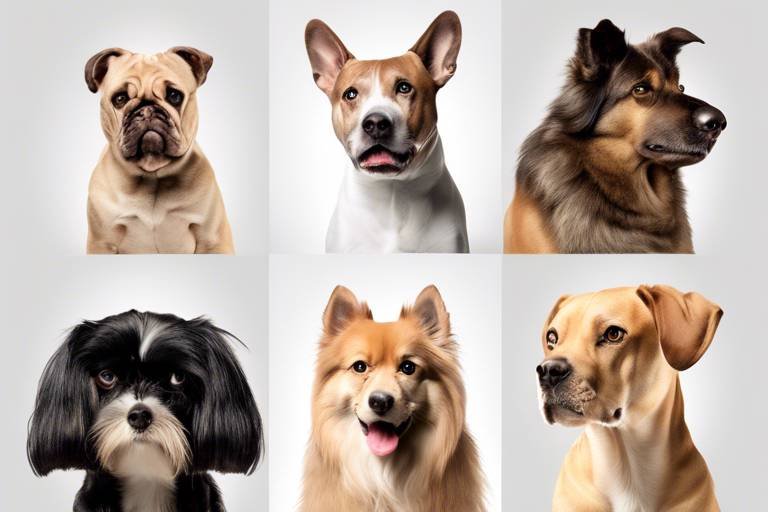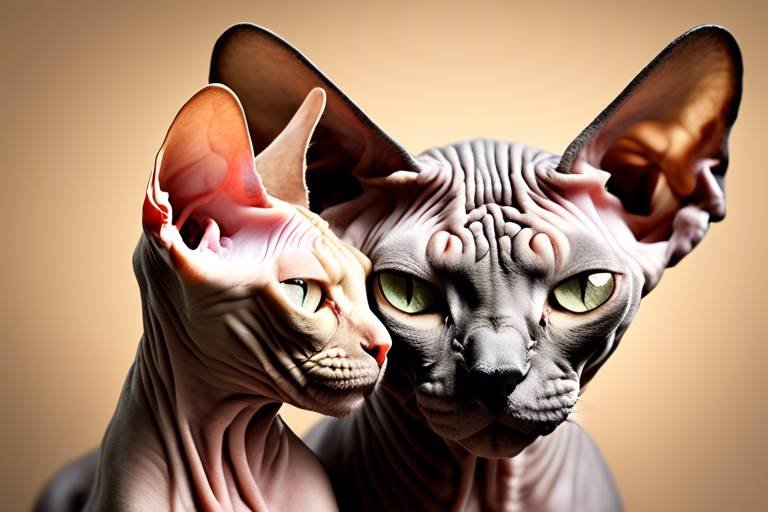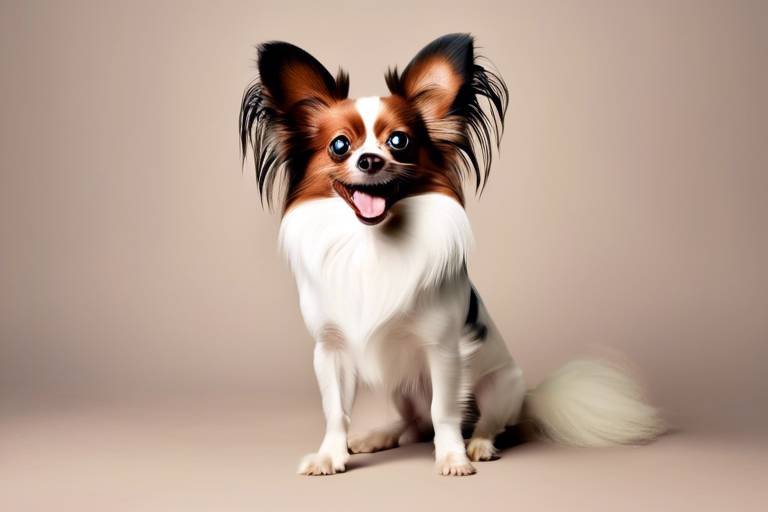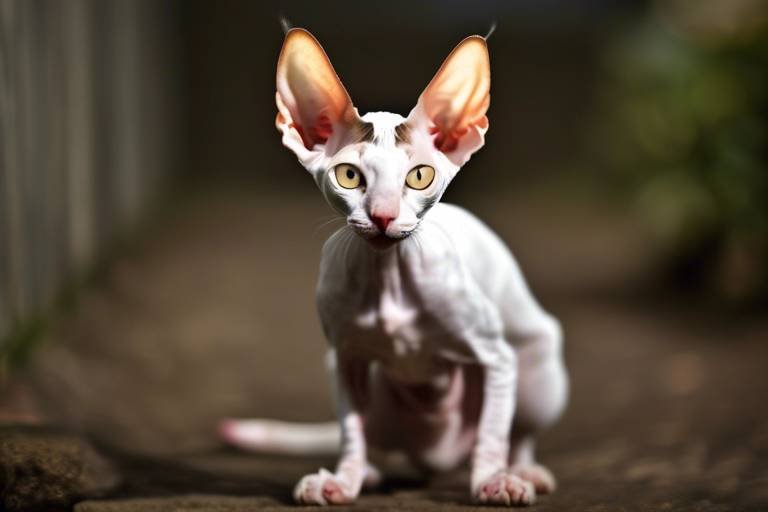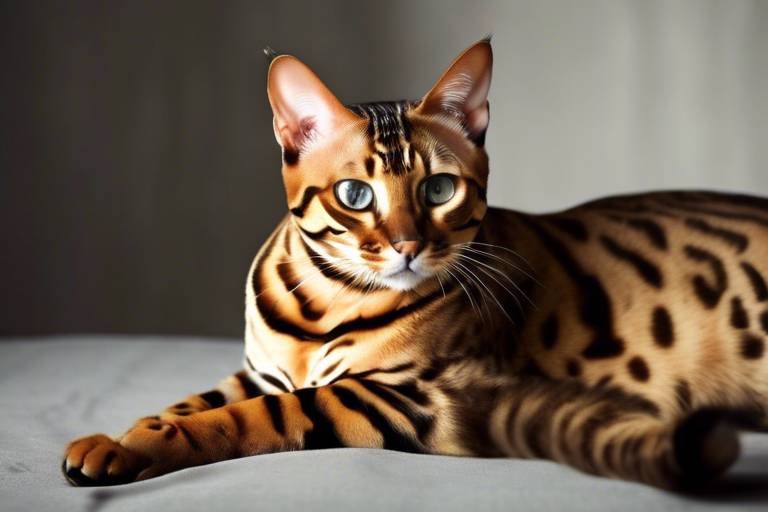Exploring the Affectionate Nature of Poodles
Poodles are not just dogs; they are a bundle of joy wrapped in fur! Known for their affectionate nature and loyal temperament, these dogs have captured the hearts of many. Whether you're a seasoned dog owner or a first-time pet parent, understanding the unique characteristics of Poodles can enrich your experience and strengthen your bond. Their intelligence and friendly demeanor make them not just pets but beloved family members. Imagine coming home after a long day and being greeted by a wagging tail and loving eyes—this is the magic that Poodles bring into our lives!
But what exactly makes Poodles so special? For starters, they possess an innate ability to connect with humans on an emotional level. Their playful antics and gentle nature create an environment filled with laughter and love. In this article, we will explore the various aspects of Poodles that contribute to their affectionate nature, including their personality traits, different types, training needs, and tips for building a strong bond. So, let's dive into the world of Poodles and discover why they are often considered the epitome of canine companionship!
Poodles are renowned for their friendly and intelligent disposition. They are often described as social butterflies of the dog world, eager to befriend everyone they meet. This section will explore their personality traits, highlighting how these qualities contribute to their affectionate demeanor and suitability as family pets. Poodles are not just about looks; their personality shines through in their interactions with people and other animals.
One of the most striking traits of Poodles is their curiosity. They are always eager to explore their surroundings, which makes them highly engaging companions. Their intelligence allows them to learn new tricks and commands quickly, and they often thrive on positive reinforcement. This eagerness to please their owners further enhances their affectionate nature. Moreover, Poodles are known for their empathy; they seem to sense when their owners are feeling down and often provide comfort just by being their loving selves.
When we talk about Poodles, it's essential to recognize that there are three main types: Standard, Miniature, and Toy. Each type has its own distinct characteristics and behaviors that influence their affectionate nature, making them unique companions. Understanding these differences can help potential owners choose the right Poodle for their lifestyle.
Standard Poodles are the largest of the three types, known for their gentle disposition and playful spirit. Their size and temperament make them excellent family pets that thrive on affection. They often enjoy outdoor activities and are great companions for families with children. Their friendly nature allows them to bond easily with family members, and they are known to be protective of their loved ones, showcasing their loyalty.
Miniature Poodles possess a lively personality and a strong bond with their owners. Their affectionate nature allows them to adapt well to various living situations, making them popular companions. They are particularly well-suited for families living in smaller spaces, as they require less room to play. Despite their smaller size, they have a big heart and are known to be quite playful, often engaging in fun activities with their owners.
Toy Poodles, the smallest variety, are known for their charming and loving behavior. Their compact size makes them perfect lap dogs, often seeking affection and companionship from their owners. They are incredibly portable, allowing you to take them along on adventures, whether it's a trip to the park or a cozy movie night at home. Their affectionate nature ensures that they thrive on human interaction, often curling up next to their owners for a cuddle.
Training and socialization are crucial for nurturing a Poodle's affectionate nature. This section discusses effective training techniques that enhance their loving temperament and strengthen the bond with their families. A well-trained Poodle is not just obedient; they are also more confident and secure, which allows their affectionate side to shine through.
Utilizing positive reinforcement techniques fosters a trusting relationship between Poodles and their owners. This approach encourages affectionate behavior and helps in developing a well-adjusted pet. Instead of harsh training methods, rewarding your Poodle with treats, praise, or playtime when they exhibit good behavior can significantly enhance their willingness to learn and bond with you.
Socializing Poodles with other animals is essential for their emotional well-being. This practice promotes a friendly demeanor, allowing them to express their affectionate nature towards both humans and other pets. Early socialization can prevent behavioral issues down the line and ensure that your Poodle grows up to be a well-rounded companion.
Developing a strong bond with a Poodle enhances their affectionate behavior. This section offers tips on how to cultivate a loving relationship through play, training, and quality time spent together. Engaging in activities that both you and your Poodle enjoy can create lasting memories and deepen your connection.
In conclusion, Poodles are more than just pets; they are affectionate companions that bring joy and love into our lives. By understanding their unique characteristics and nurturing their affectionate nature, you can create a fulfilling relationship that lasts a lifetime.
- Are Poodles hypoallergenic? Yes, Poodles have a unique coat that reduces shedding and dander, making them a popular choice for allergy sufferers.
- How much exercise do Poodles need? Poodles are active dogs that require regular exercise. Daily walks and playtime are essential for their physical and mental well-being.
- Do Poodles get along with children? Absolutely! Poodles are known for their friendly nature and typically get along well with children, making them excellent family pets.
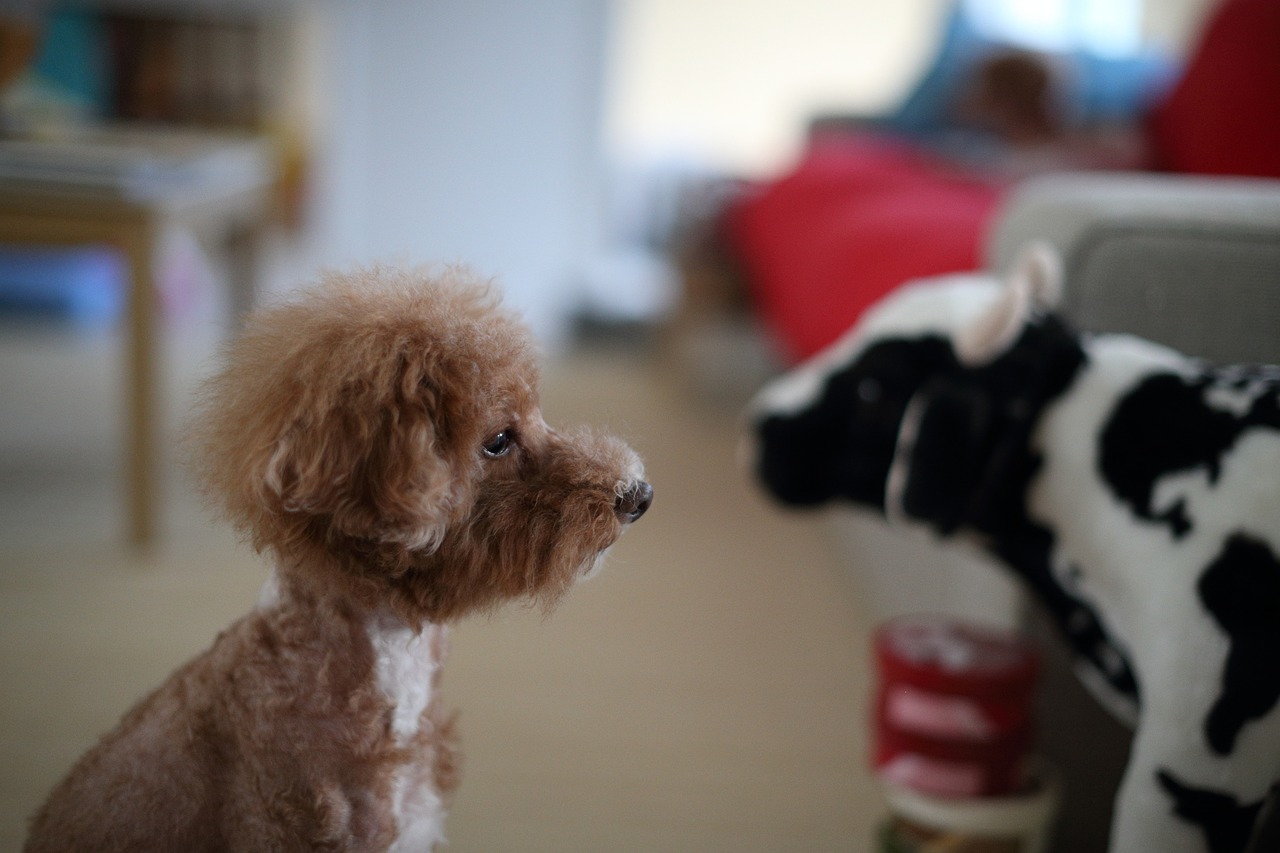
The Poodle Personality
Poodles are not just dogs; they are a delightful blend of intelligence, playfulness, and affection. Known for their friendly demeanor, Poodles have earned a reputation as one of the most loving breeds around. Their ability to connect with humans on an emotional level is truly remarkable, making them ideal companions for families, singles, and seniors alike. But what exactly makes the Poodle personality so captivating? Let’s dive into the traits that set them apart.
First and foremost, Poodles are incredibly intelligent. They are often ranked among the smartest dog breeds, which means they not only learn commands quickly but also understand human emotions and cues. This intelligence contributes to their affectionate nature; they can sense when their owners are happy, sad, or in need of comfort. Imagine coming home after a tough day at work, and your Poodle greets you with an enthusiastic wag of its tail, keenly aware that you need a little extra love. It’s moments like these that showcase their intuitive understanding of human feelings.
Moreover, Poodles are known for their playful spirit. Their playful antics can brighten anyone's day. Whether it’s chasing after a ball, performing tricks, or simply frolicking in the yard, Poodles have an innate ability to bring joy to their surroundings. This playful nature not only makes them fun to be around but also fosters a deeper bond with their families. When you engage in play with your Poodle, you’re not just having fun; you’re building a strong emotional connection that enhances their affectionate behavior.
Another noteworthy trait of Poodles is their adaptability. Whether you live in a spacious house or a cozy apartment, Poodles can adjust to their environment as long as they receive enough love and attention. Their affectionate nature means they thrive on companionship, so whether they’re lounging on your lap or playing at the park, they are happiest when they are with their loved ones. This adaptability makes them suitable for various lifestyles, ensuring that they can fit into almost any family dynamic.
Additionally, Poodles are known for their social nature. They generally get along well with children, other pets, and even strangers. Their friendly disposition allows them to be welcoming and loving, making them excellent family pets. However, it’s essential to note that their social skills need to be nurtured through proper training and socialization. When raised in a loving environment and exposed to various situations, Poodles can develop into well-rounded and affectionate companions.
In summary, the Poodle personality is a beautiful combination of intelligence, playfulness, adaptability, and sociability. These traits not only make them affectionate pets but also loving family members who bring joy and companionship into our lives. If you're considering adding a Poodle to your family, be prepared for a loyal friend who will shower you with love and affection.
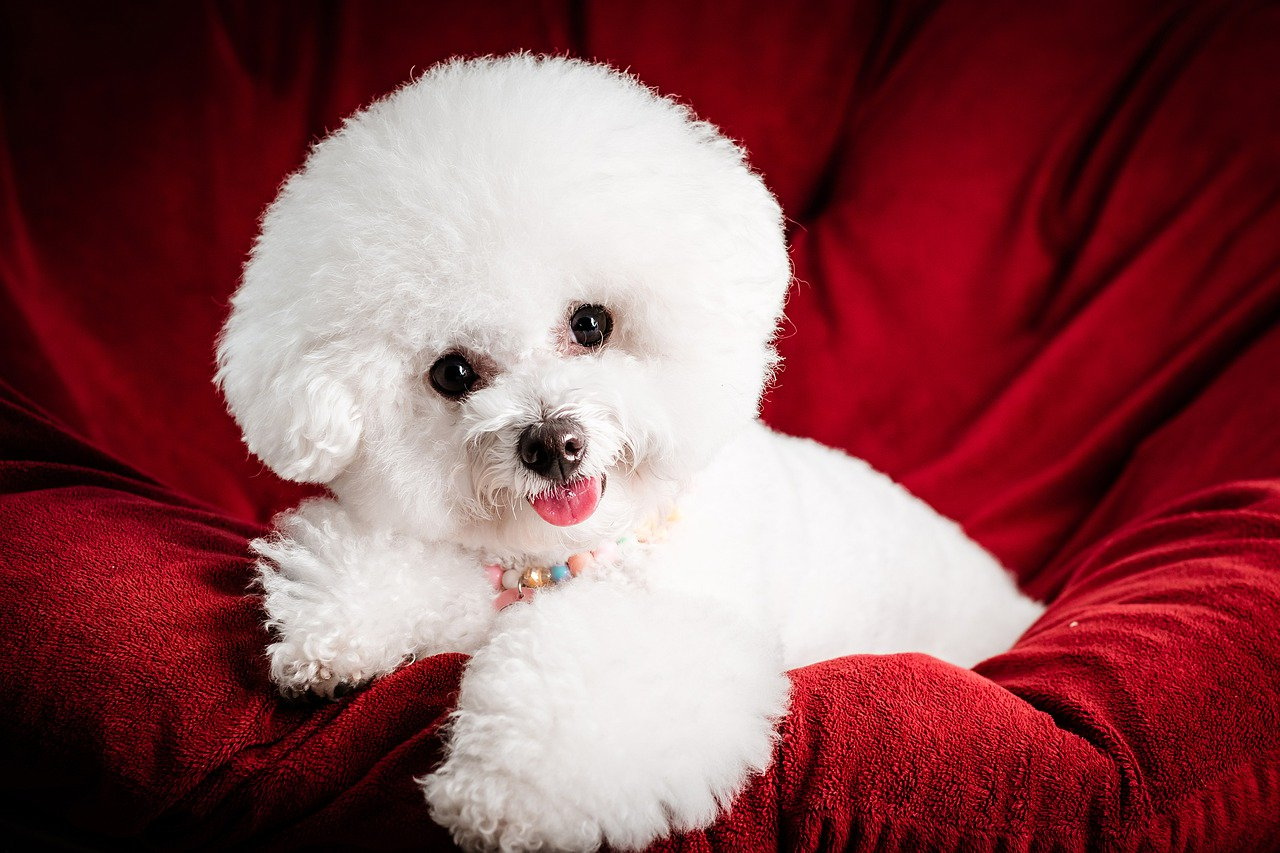
Types of Poodles
Poodles come in three distinct types: Standard, Miniature, and Toy, each showcasing their own unique characteristics and behaviors. Understanding these types is essential for anyone considering bringing a Poodle into their home, as their size and temperament can significantly affect their affectionate nature and suitability for different family dynamics. Let's dive into the delightful world of Poodles and explore what makes each type special.
Standard Poodles are the largest of the three types, typically weighing between 40 to 70 pounds. They are renowned for their gentle disposition and playful spirit. With their striking appearance and elegant stature, Standard Poodles often become the center of attention wherever they go. Their size and temperament make them excellent family pets that thrive on affection. They have an innate ability to bond closely with their families, often forming strong attachments that can last a lifetime. This type of Poodle is particularly known for being highly trainable, which enhances their affectionate nature. Their intelligence means they enjoy learning new tricks and commands, making training sessions a fun and rewarding experience for both the dog and the owner.
Miniature Poodles are a perfect blend of charm and personality, weighing between 15 to 17 pounds. They possess a lively disposition and are known for their strong bond with their owners. Their affectionate nature allows them to adapt well to various living situations, whether it's a bustling family home or a cozy apartment. Miniature Poodles are often described as being "big dogs in small bodies" because of their energetic and playful demeanor. They love to engage in playtime and are always up for a good cuddle session. Their intelligence and eagerness to please make them highly trainable, which is a significant factor in nurturing their loving temperament.
Toy Poodles, the smallest variety, usually weigh around 4 to 6 pounds. They are known for their charming and loving behavior, making them ideal lap dogs. Their compact size means they can easily snuggle up on your lap or fit into a small bag, which makes them perfect companions for those who enjoy taking their pets on the go. Toy Poodles are incredibly affectionate and often seek companionship from their owners, displaying their love through cuddles and playful antics. Despite their small size, these little bundles of joy have big personalities, often being spunky and full of life. Their affectionate nature is complemented by their intelligence, making them both delightful and easy to train.
In summary, whether you're drawn to the majestic Standard Poodle, the spirited Miniature Poodle, or the adorable Toy Poodle, each type offers a unique set of traits that contribute to their loving and loyal nature. Understanding these differences is crucial in selecting the right Poodle for your family, ensuring that you find a companion that fits your lifestyle and brings endless joy and affection into your home.
Standard Poodles
Standard Poodles are truly a remarkable breed, standing out as the largest among their Poodle counterparts. Their size is not just a physical attribute; it reflects their gentle disposition and playful spirit. Imagine having a dog that is not only a companion but also a gentle giant, ready to shower you with love and affection. These dogs are often characterized by their intelligence and loyalty, making them not just pets but integral members of the family.
One of the most endearing traits of Standard Poodles is their affectionate nature. They thrive on human interaction and are known to form deep bonds with their families. Whether it's snuggling on the couch after a long day or eagerly participating in family activities, Standard Poodles are always up for some quality time. Their playful demeanor can light up any room, and their ability to sense emotions makes them excellent companions during both happy times and challenging moments.
In terms of behavior, Standard Poodles are highly trainable. Their intelligence means they can learn commands quickly and enjoy the process of training. This eagerness to learn is part of what makes them such affectionate pets; they want to please their owners. Engaging them in training sessions not only helps in developing their skills but also strengthens the bond you share. Imagine teaching your Standard Poodle a new trick, and the joy in their eyes as they perform it perfectly for you. It’s these moments that create lasting memories.
Moreover, Standard Poodles are known for their social nature. They generally get along well with children, other pets, and even strangers, making them versatile family dogs. Their playful attitude can turn a mundane day into an adventure, whether it’s a game of fetch in the backyard or a leisurely walk in the park. Their size allows them to be robust playmates for kids, while their gentle nature ensures that they are careful and loving.
To sum it up, Standard Poodles are not just large dogs; they are affectionate companions that bring joy and love into the lives of their families. Their combination of intelligence, playfulness, and social nature makes them an ideal choice for anyone looking to welcome a loving pet into their home. If you're considering adding a Standard Poodle to your family, be prepared for a lifetime of affection and loyalty.
- Are Standard Poodles good with children? Yes, Standard Poodles are known for their gentle and playful nature, making them great companions for children.
- How much exercise do Standard Poodles need? They require regular exercise, including walks and playtime, to keep them healthy and happy.
- Do Standard Poodles shed a lot? Standard Poodles are considered low-shedding dogs, making them a good option for those with allergies.
- How trainable are Standard Poodles? They are highly trainable due to their intelligence and eagerness to please, making training sessions enjoyable.
Miniature Poodles
Miniature Poodles are a delightful blend of charm and intelligence, making them one of the most sought-after companions for dog lovers. These little bundles of joy possess a lively personality that can light up any room. With their affectionate nature, they form a strong bond with their owners, often becoming inseparable. Imagine having a furry friend that not only brings joy but also a sense of companionship that feels like a warm hug on a cold day!
One of the remarkable aspects of Miniature Poodles is their adaptability. Whether you live in a cozy apartment or a spacious house, they adjust seamlessly to their surroundings. This adaptability is largely due to their inherent desire to be close to their families. They thrive on affection and love to be included in family activities, making them perfect for households of all sizes. Their playful demeanor and affectionate nature make them excellent playmates for children, while also being sensitive enough to provide comfort to adults.
Miniature Poodles are often described as social butterflies. They enjoy meeting new people and can be quite the entertainers with their clever antics. Their intelligence makes them quick learners, which is a significant factor in their training and socialization. With the right guidance, they can master tricks and commands that not only impress but also deepen the bond they share with their owners.
When it comes to grooming, Miniature Poodles do require regular maintenance due to their curly coat. However, this grooming ritual can be a wonderful bonding experience. Picture this: you and your Miniature Poodle spending time together during grooming sessions, where you both get to enjoy each other's company. This not only keeps them looking fabulous but also reinforces the trust and affection between you.
In summary, Miniature Poodles are more than just adorable pets; they are affectionate companions that enrich the lives of those around them. Their lively personality, adaptability, and intelligence make them unique, and their desire for affection ensures that they become an integral part of your family. If you’re considering adding a Miniature Poodle to your home, be prepared for a loyal friend who will fill your days with joy and love.
- What is the average lifespan of a Miniature Poodle? Miniature Poodles typically live between 12 to 15 years, depending on their health and care.
- Are Miniature Poodles good with children? Yes! They are known for their playful and gentle nature, making them great companions for kids.
- How often do Miniature Poodles need to be groomed? Due to their curly coats, they should be groomed every 4 to 6 weeks to prevent matting.
- Do Miniature Poodles require a lot of exercise? While they are energetic, short daily walks and playtime will suffice for their exercise needs.
Toy Poodles
Toy Poodles, the smallest of the Poodle varieties, are not just cute little companions; they are a bundle of joy wrapped in fur! These pint-sized pooches typically weigh around 4 to 6 pounds and stand about 10 inches tall at the shoulder, making them perfect for those who want a dog that can easily fit into their lap or bag. But don’t let their size fool you; their affectionate nature and lively personality make them larger than life in the love department.
One of the most delightful aspects of Toy Poodles is their charming demeanor. They are known for their playful antics and loving disposition, often forming an unbreakable bond with their owners. Imagine coming home after a long day, only to be greeted by an enthusiastic little friend who can’t wait to shower you with affection! This unwavering loyalty and eagerness to please make them ideal companions, especially for families or individuals seeking a devoted pet.
Moreover, Toy Poodles thrive on human interaction. They are social creatures that love to be part of the family, often following their owners from room to room. This affectionate behavior not only enhances their bond with their owners but also provides them with a sense of security and happiness. It's not uncommon to find a Toy Poodle snuggled up next to its owner on the couch, seeking warmth and companionship.
When it comes to their care, Toy Poodles require regular grooming due to their curly coats, which can mat easily. However, grooming time can also serve as a special bonding experience. Many owners find that their Toy Poodles enjoy being pampered, and this grooming routine helps to reinforce the affectionate nature of the breed. A little brush here and a gentle comb there can turn into a delightful ritual that both dog and owner look forward to.
In terms of training, Toy Poodles are highly intelligent and eager to learn. This makes them relatively easy to train, especially when using positive reinforcement techniques. They respond well to praise and treats, which encourages them to display their affectionate side even more. By engaging them in training sessions, owners can not only teach them commands but also strengthen the emotional bond they share.
In conclusion, Toy Poodles are more than just adorable little dogs; they are loving companions that enrich the lives of their owners. Their affectionate nature, combined with their playful spirit, makes them a perfect choice for anyone looking to add a little joy to their home. If you’re considering bringing a Toy Poodle into your life, be prepared for a loyal friend who will fill your days with love and laughter!
- How much exercise do Toy Poodles need? Toy Poodles require moderate exercise. Daily walks and playtime are essential to keep them healthy and happy.
- Are Toy Poodles good with children? Yes! Toy Poodles are generally good with children, but supervision is necessary to ensure gentle interactions.
- Do Toy Poodles shed? Toy Poodles are considered hypoallergenic and have a low-shedding coat, making them suitable for allergy sufferers.
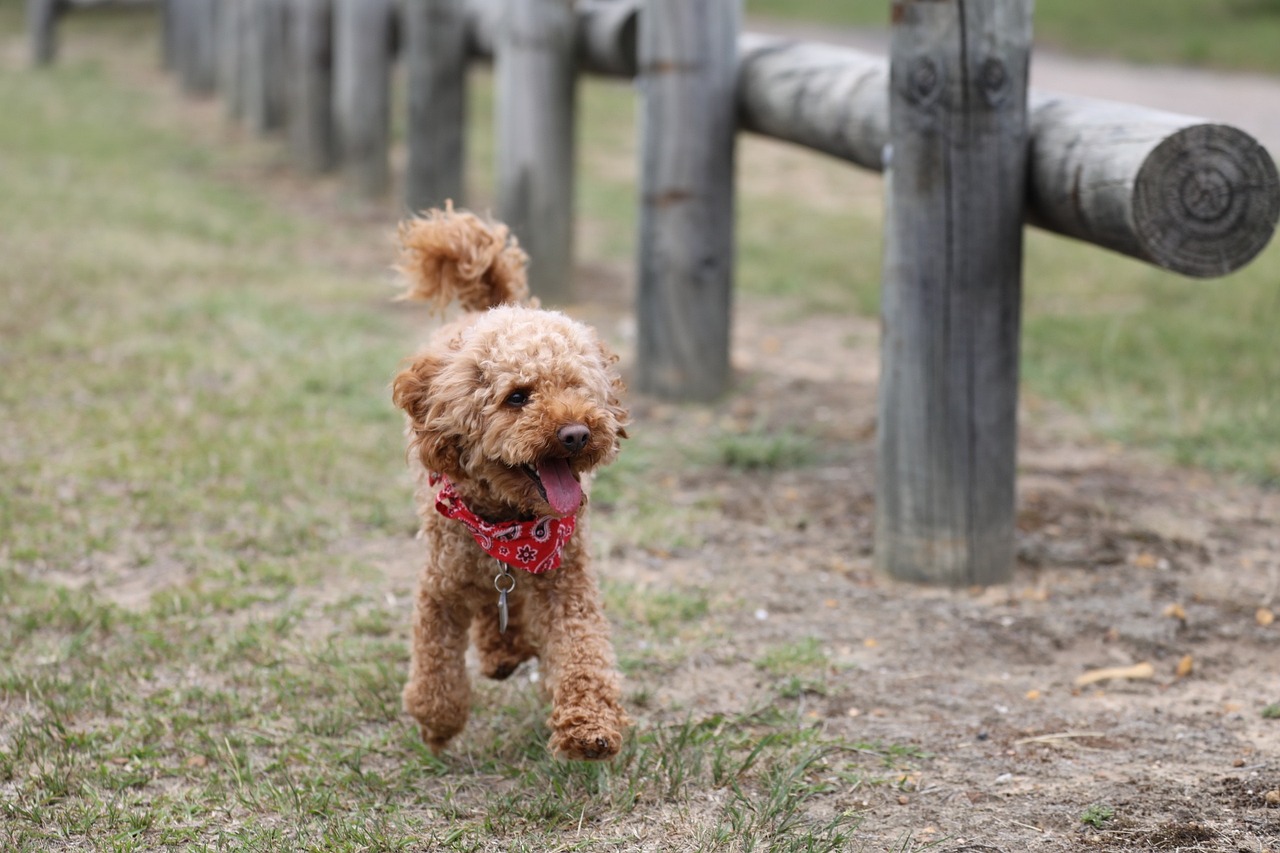
Training and Socialization
Training and socialization are not just important; they are absolutely crucial for nurturing the affectionate nature of Poodles. These intelligent dogs thrive on interaction and learning, making them eager students when it comes to training. A well-trained Poodle is not only a joy to have around but also reflects the love and care you invest in them. Think of training as a way to communicate with your furry friend, shaping their behavior and strengthening your bond. After all, a dog that understands what is expected of them is much more likely to exhibit affectionate behaviors towards their family.
In the realm of training, positive reinforcement techniques shine like a beacon. Instead of harsh corrections or negative feedback, rewarding your Poodle with treats, praise, or playtime for good behavior creates a trusting relationship. Imagine this: every time your Poodle sits on command and receives a tasty treat, they not only learn the command but also associate it with positive feelings. This method encourages them to repeat the behavior, fostering a loving connection that goes beyond mere obedience.
Socialization is equally important. Poodles are social creatures by nature, and exposing them to different environments, people, and other pets helps them develop a well-rounded personality. Without proper socialization, a Poodle may become anxious or overly protective, which can hinder their affectionate tendencies. Therefore, introducing your Poodle to various situations—like parks, pet-friendly stores, and even playdates with other dogs—can enhance their friendly demeanor. It's like giving them a passport to the world, allowing them to express their love and friendliness towards everyone they meet.
To further emphasize the importance of training and socialization, let’s look at a few key benefits:
- Improved Behavior: A well-trained Poodle is less likely to exhibit undesirable behaviors, making them a joy to have around.
- Enhanced Affection: Training fosters a deeper bond, encouraging more affectionate interactions.
- Social Skills: Regular socialization helps your Poodle interact positively with other pets and people, showcasing their loving nature.
In conclusion, investing time and effort into training and socialization not only enhances your Poodle's affectionate nature but also enriches your relationship with them. The joy of having a loving, well-adjusted Poodle is immeasurable, and it all starts with the right training and socialization practices.
Q: How early should I start training my Poodle?
A: It’s best to start training your Poodle as early as possible, ideally when they are a puppy. Early training helps to establish good habits and encourages affectionate behavior.
Q: What are some effective training techniques for Poodles?
A: Positive reinforcement is one of the most effective techniques. Use treats, praise, and playtime as rewards to encourage desired behaviors.
Q: How can I socialize my Poodle effectively?
A: Gradually introduce your Poodle to different people, pets, and environments. Start with controlled settings and gradually increase exposure as they become more comfortable.
Q: Can Poodles be trained to get along with other pets?
A: Yes! With proper socialization and training, Poodles can learn to coexist and even become friends with other pets.
Positive Reinforcement Techniques
When it comes to training your Poodle, are your best friends. Imagine this: instead of scolding your furry companion for not sitting on command, you shower them with praise and treats when they do it right. This method not only builds a trusting relationship between you and your Poodle but also encourages them to repeat the desired behavior. After all, who doesn’t love a little reward for a job well done?
Positive reinforcement can take many forms. You can use verbal praise, a gentle pat on the head, or even their favorite toy as a reward. The key is to be consistent. For instance, if your Poodle sits when you say "sit," immediately follow up with a treat and enthusiastic praise. This creates a strong association in their mind: "Sitting equals yummy treats!"
Moreover, timing is crucial. The reward should come right after the desired behavior. If there’s a delay, your Poodle may not connect the dots, and the training session could lose its effectiveness. Think of it like a game; the quicker you reward them, the more engaged they’ll be. It’s like playing fetch—if you throw the ball and wait too long to call them back, they might lose interest!
To further enhance their training, consider incorporating a variety of rewards. For instance, you can create a reward schedule that alternates between treats, praise, and playtime. This keeps the training sessions exciting and helps your Poodle stay motivated. Here’s a simple way to visualize it:
| Behavior | Reward Type | Frequency |
|---|---|---|
| Sit | Treat | Every time |
| Stay | Praise | Every other time |
| Come | Playtime | Every third time |
Incorporating these techniques not only nurtures your Poodle's affectionate nature but also makes training a fun and rewarding experience for both of you. Remember, the goal is to foster a loving environment where your Poodle feels safe and eager to learn. So, the next time you’re training, think about how you can make it a positive experience—your Poodle will thank you with their endless affection!
- What is positive reinforcement in dog training? Positive reinforcement is a training method that rewards desired behaviors with treats, praise, or toys to encourage their repetition.
- How can I tell if my Poodle is enjoying training? Look for signs of enthusiasm, such as wagging tails, eager participation, and playful behavior. If they seem disinterested, it might be time to change up your approach!
- Can I use positive reinforcement for older dogs? Absolutely! Positive reinforcement works for dogs of all ages. It can help build trust and strengthen your bond, no matter how old your Poodle is.
Socialization with Other Pets
Socializing your Poodle with other pets is not just a good idea; it's a vital part of ensuring they develop into well-rounded, affectionate companions. Imagine your Poodle as a social butterfly, eager to make friends with everyone they meet—both human and furry! This friendly demeanor can be nurtured through careful and consistent socialization practices. When Poodles interact with other pets, whether they are dogs, cats, or even smaller animals, they learn important social cues that help them express their affectionate nature.
One of the best ways to facilitate this socialization is through controlled introductions. Start by allowing your Poodle to meet other pets in a neutral environment. This reduces the likelihood of territorial behavior and helps create a positive first impression. You might consider arranging playdates with other friendly dogs or visiting pet-friendly parks. Remember, the goal is to create a fun and relaxed atmosphere where your Poodle can feel safe to explore and interact.
It's also important to monitor these interactions closely. Look for signs of stress or discomfort in your Poodle, such as whining, hiding, or excessive barking. If you notice any of these behaviors, it might be best to give them a break and try again later. On the flip side, when your Poodle engages positively—like wagging their tail, playing, or showing curiosity—praise them! Positive reinforcement is key to building their confidence and encouraging affectionate behavior.
Furthermore, consider enrolling your Poodle in obedience classes or group training sessions. These environments not only teach essential commands but also provide a structured setting for socialization. Here, your Poodle can learn to interact with other dogs under the guidance of a trainer. This experience can be incredibly beneficial, as it teaches them how to behave appropriately around their peers, further enhancing their affectionate nature.
In summary, socialization with other pets is an essential aspect of raising a well-adjusted Poodle. By providing opportunities for positive interactions, you are not only fostering a loving temperament but also ensuring that your Poodle can thrive in a variety of social situations. Remember, a well-socialized Poodle is a happy Poodle, and happiness often translates to more love and affection for their human family!
- How early should I start socializing my Poodle?
It's best to start socializing your Poodle as early as possible, ideally during their puppy stage (between 3 to 14 weeks old). This is a critical period for learning and adapting to new experiences. - Can I socialize my adult Poodle?
Absolutely! While it may take a bit more time and patience, adult Poodles can still learn to socialize. Gradual introductions and positive reinforcement are key. - What should I do if my Poodle is aggressive towards other pets?
If your Poodle shows aggressive behavior, it’s important to consult a professional trainer or behaviorist. They can provide guidance tailored to your Poodle’s specific needs.
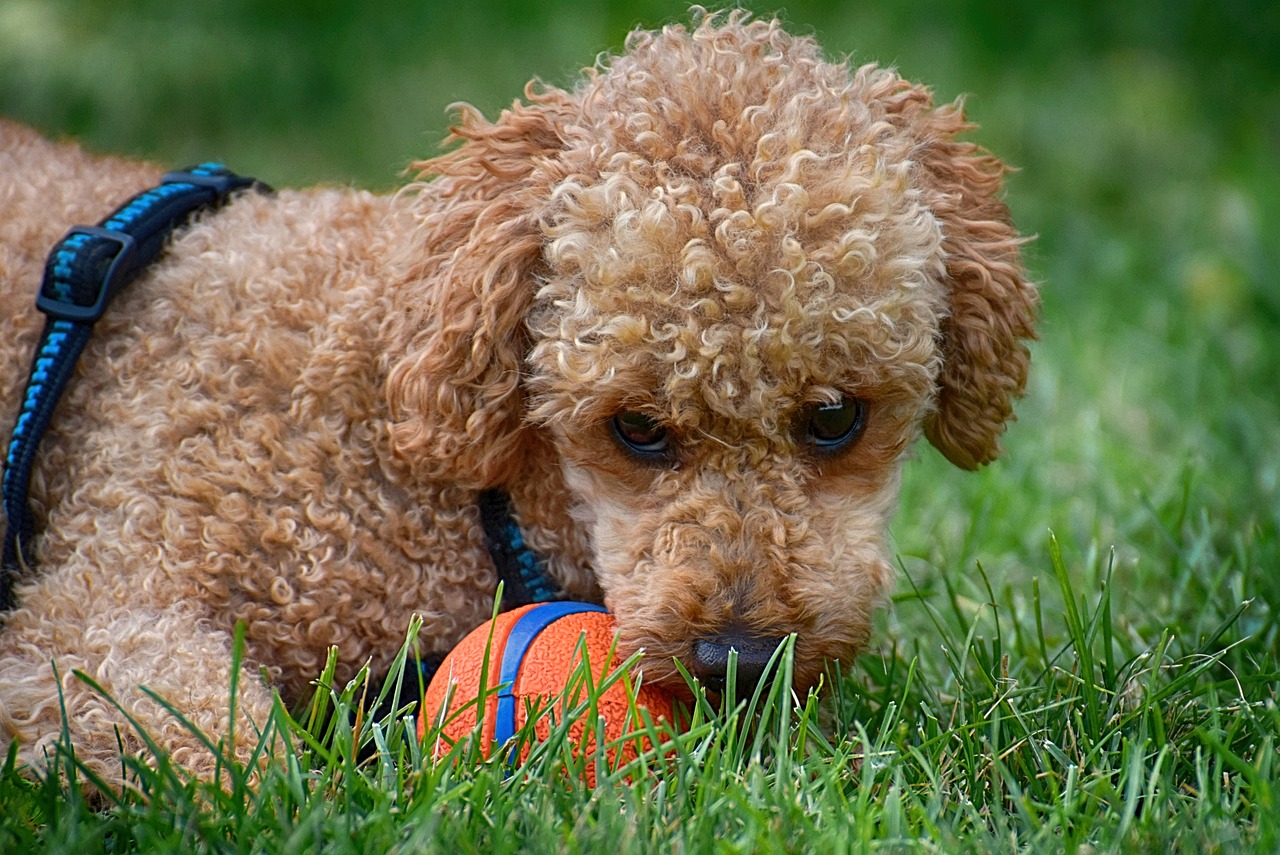
Building a Strong Bond
Building a strong bond with your Poodle is not just beneficial; it's essential for nurturing their affectionate nature. Just like a gardener tends to their plants, you need to invest time, love, and attention into your relationship with your furry friend. This bond is what transforms a pet into a family member, and it all starts with understanding their needs and desires.
One of the most effective ways to strengthen your connection with a Poodle is through quality time. Whether it’s a brisk walk in the park, a cozy evening on the couch, or an exciting game of fetch, these moments are invaluable. Poodles are social creatures that thrive on interaction. They don’t just want to be around you; they want to be with you. Think of it like this: just as you wouldn’t want to have a friend who only shows up when they need something, your Poodle craves consistent companionship.
Playtime is another fantastic opportunity to deepen your bond. Engaging in interactive games like tug-of-war or hide and seek can be incredibly rewarding for both you and your Poodle. These activities not only provide physical exercise but also stimulate their minds. Remember, a tired Poodle is a happy Poodle! Incorporating play into your daily routine helps reinforce their trust in you and shows them that you’re a fun and reliable companion.
Additionally, training sessions are a pivotal part of building that strong connection. When you train your Poodle, you’re not just teaching them commands; you’re also establishing a two-way communication channel. Use positive reinforcement techniques—like treats, praise, or a favorite toy—to encourage good behavior. This method not only makes training enjoyable but also fosters a trusting relationship. Imagine how rewarding it feels when your Poodle responds to your commands with enthusiasm! It’s a testament to the bond you’re building.
Socialization is equally important. Allow your Poodle to interact with other dogs and people, as this experience enhances their emotional well-being. A well-socialized Poodle is more likely to express their affectionate nature, not just towards you but towards others as well. Think of it as teaching your Poodle the art of friendship. Just like humans, dogs need to learn how to make friends, and your guidance is crucial in this journey.
Lastly, don’t underestimate the power of routine. Dogs, especially Poodles, thrive on predictability. Establishing a daily routine that includes feeding, walks, playtime, and cuddle sessions can help your Poodle feel secure and loved. It’s like creating a safety net for them—when they know what to expect, they can relax and enjoy their time with you. This predictability fosters a comforting environment where affection can flourish.
- How long does it take to build a bond with a Poodle? Every dog is different, but with consistent effort and love, you can start seeing a strong bond form within a few weeks.
- Can I build a bond with my Poodle through training? Absolutely! Training is a great way to establish trust and communication, which are key components of a strong bond.
- What activities help strengthen my bond with my Poodle? Activities such as playtime, training, and daily walks are excellent for building a close relationship with your Poodle.
- Is socialization important for bonding? Yes, socialization not only helps your Poodle become well-adjusted but also allows them to express their affectionate nature towards others.
Frequently Asked Questions
- What makes Poodles such affectionate pets?
Poodles are renowned for their friendly and intelligent nature. Their ability to bond closely with their families, combined with their playful and loving demeanor, makes them exceptional companions. They thrive on interaction and affection, often seeking out their owners for cuddles and playtime.
- How do the different types of Poodles differ in terms of affection?
While all Poodles are affectionate, their type can influence their behavior. Standard Poodles tend to be gentle giants, Miniature Poodles are lively and adaptable, and Toy Poodles are charming lap dogs. Each type has its unique way of expressing love, but they all share a deep desire for companionship.
- What training methods work best for encouraging affectionate behavior in Poodles?
Positive reinforcement techniques are highly effective for Poodles. Using treats, praise, and playtime as rewards helps build trust and encourages them to be affectionate. Consistent training sessions that focus on bonding can significantly enhance their loving temperament.
- How important is socialization for a Poodle's affectionate nature?
Socialization is crucial for developing a well-rounded and affectionate Poodle. Exposing them to various environments, people, and other pets helps them become more confident and friendly. This interaction allows them to express their loving nature towards everyone they meet.
- What are some effective ways to strengthen the bond with my Poodle?
Building a strong bond with your Poodle involves spending quality time together through play, training, and regular walks. Engaging in activities they enjoy, such as fetch or agility training, can enhance your relationship. Remember, the more time you invest in your Poodle, the deeper your connection will become.





